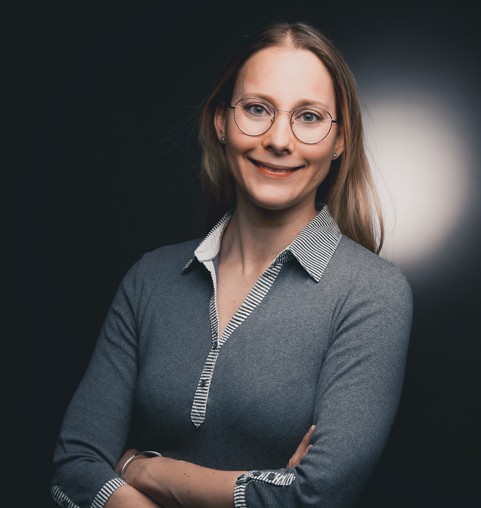
SPEAKER PROFILE |
 R&D engineer, IMS CHIPS Germany |
Advanced Flexible Electronics for Medical Applications
Abstract
Heterogeneous integration of components from different manufacturing technologies (sensors, readout ASICs, NFC) in a flexible film system provides a technological solution for industrial automation, robotics and medical applications. The advantages include a high level of miniaturisation and an improved form factor. These aspects are also of particular interest to the medical sector.
The Chip-Film Patch (CFP) process developed at IMS CHIPS is a suitable integration technology for manufacturing such small, flexible electronic sensors. It is a wafer-based process using the polyimide PI-2611 as the dielectric. High-performance CMOS chips are thinned to 30 µm, integrated into the polyimide film and encapsulated with multiple layers of spin-coated polyimide. The conductor tracks that connect the embedded chips to the sensors and the peripherals are realised by lithography, sputtering and RIE processes.
The resulting CFP enables significantly higher circuit density, very small pad sizes and very low thickness compared to standard packaging technology. In this talk I will present the latest developments in the CFP process and highlight some of the potential applications for the medical sector.
Since the end of 2017, she has been working as an R&D engineer at IMS CHIPS in Stuttgart in the Advanced Packaging Department, while also working on her doctoral thesis, which focuses on the development of ultra-thin polymer-based sensor systems and their long-term stability for use in medical technology.
In December 2022, she was elected spokeswoman for the "Micromedical Technology Expert Group" of the microTEC Südwest Cluster in Germany, and since the beginning of 2024 she has also been responsible for the area of "Heterogeneous Integration for Flexible Electronics".
In the same year, in March 2024, she was honored with the "Young Researcher Award" at the EBL24 conference.
She currently works as a project manager for publicly funded research projects and was responsible for the EU project "HyPerStripes" until March 2025.
The Chip-Film Patch (CFP) process developed at IMS CHIPS is a suitable integration technology for manufacturing such small, flexible electronic sensors. It is a wafer-based process using the polyimide PI-2611 as the dielectric. High-performance CMOS chips are thinned to 30 µm, integrated into the polyimide film and encapsulated with multiple layers of spin-coated polyimide. The conductor tracks that connect the embedded chips to the sensors and the peripherals are realised by lithography, sputtering and RIE processes.
The resulting CFP enables significantly higher circuit density, very small pad sizes and very low thickness compared to standard packaging technology. In this talk I will present the latest developments in the CFP process and highlight some of the potential applications for the medical sector.
Bio
Ulrike Passlack graduated with an M.Sc. in Chemistry from the University of Ulm, Germany, in 2017. During her studies, she worked at the Max Planck Institute for Biological Cybernetics in the Department of Neurophysiology in Tübingen, where she also completed her Master's thesis entitled "A multimodal probe for multi-site electrophysiology and electrochemistry in the rodent brain".Since the end of 2017, she has been working as an R&D engineer at IMS CHIPS in Stuttgart in the Advanced Packaging Department, while also working on her doctoral thesis, which focuses on the development of ultra-thin polymer-based sensor systems and their long-term stability for use in medical technology.
In December 2022, she was elected spokeswoman for the "Micromedical Technology Expert Group" of the microTEC Südwest Cluster in Germany, and since the beginning of 2024 she has also been responsible for the area of "Heterogeneous Integration for Flexible Electronics".
In the same year, in March 2024, she was honored with the "Young Researcher Award" at the EBL24 conference.
She currently works as a project manager for publicly funded research projects and was responsible for the EU project "HyPerStripes" until March 2025.
